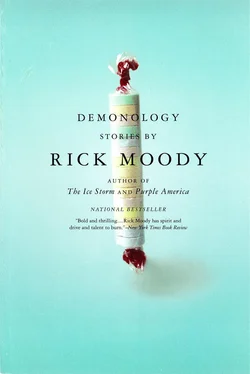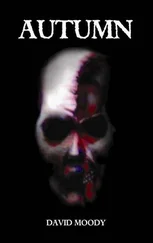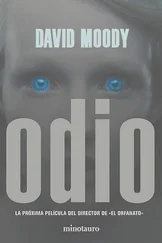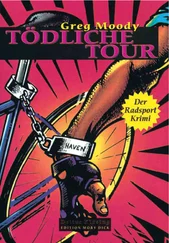It could be optioned —the story of the attractive professional woman caught in the crossfire at a local McDonald’s, taken hostage by renegade gangsters bent on seizing control of the local government, bent on revolution, bent on assassinating local government officials, and her husband, a mild-mannered actor and screenwriter who infiltrates the cadre of separatist revolutionaries at their fearsome ghetto redoubt using only the tools of the trade he has learned from action films. The prejudicial vigilante justice on which he thus embarks brings him and his wife closer together. This vigilante justice could be optioned for much better terms than the 2 % promised her for the tale of small-town America and the strong woman character.
— Are you all right? she asks Thea. She takes diminutive hands into her own. They are sitting up, in the backseat. — Any broken bones?
— What happened, Mom?
— That man was firing a gun. I don’t have any idea why. Are you all right?
Thea says nothing, and resumes the contemplation of her doll. It makes every other piece of luggage obsolete. Lily starts the Mercedes and they ease out onto Pico, which fills with traffic, as if nothing out of the ordinary has taken place, which indeed nothing has. They go as slowly as the Sunday drivers of Laurel Canyon. Lily’s breaths are shallow.
— Mom? Thea says.
— Yes, darling?
— We forgot our food.
— I think you’re right. Do you want to go back?
— No.
Lily wouldn’t go back anyway, and there isn’t time since she is late, really late, to pick Evan up from his I.Q. test. But she pulls the car over nonetheless, double parks, though it is still as if recent events were a projection upon some screen somewhere — at the Chinese theater, or in Century City; she double parks by a public telephone, gets out, dials 911. Eleven minutes later, the operator takes her call. Lily pronounces her words emphatically, as though delivering lines, Iwas witness to gunfire on Pico at the McDonalds, there was this really young boy and he was firing an automatic weapon into a crowd nearby, a crowd of teenagers, and my daughter and I …
— How did you know it was an automatic weapon? replies the operator.
— Well, I’ve seen them in the… I mean, when he fires off so many rounds in a minute… It must be a… It was almost a hundred bullets, I’d say, maybe a hundred and fifty, you should see the side of my car. I mean, it’s not my car…
— Thank you very much —
— Don’t you want to take my name?
No, the operator wants no such thing and the line is disconnected, and Lily looks back into the car, where Thea is playing with her doll, where Thea is whistling quietly, gently. The traffic is heavy. She dials 911 a second time, and goes through the whole thing again, the conversation identical; again the operator asks, How did you know it was an automatic weapon? and asks in addition how Lily is able to identify the perp if she was crouching in the backseat using her body as a shield and asks furthermore why Lily was at McDonalds in search of juice, since everybody knows its only Coke, Diet Coke, and Sprite. As if Lily’s story were a test screening and the emergency operator one of those disgruntled teens in search of narrative credibility problems who’s more interested in flirting with pals in the back row. Once the interview has become antagonistic, Lily hangs up, and there is no choice but to proceed to Evans school, though the way Lily’s foot trembles on the gas pedal suggests that this is not a good time to be driving.
— Thea, I would really like it if you would come sit in the front seat.
Her anxious tone finally works the magic, and Thea, pliable and sweet, levers herself between the seats and tumbles into the front. She leans against Lily as they are heading down Melrose. Lily thinks briefly, once more, of luggage. Where is her husband now? Could she call him? Has she done everything she might do to make her husband happy and to put him at ease? She once had collagen injected into her lips. She once fucked him in a doorway. Should she get a breast job? Should she abandon acting for good? Should she raise her children in another town and lead a quiet life? Should she leave off speaking the Latinate vocabulary of attorneys? Should she whisper the last of her movie pitches? Should she climb off the baggage carousel, where she has spent years locked in a metaphysical and purely imaginary struggle with a blonde, a fully poseable action figurine, a doll with the multiple polymer outfits? Should she walk here among the streets? Should she get out of the car, out of the city where the car-pooling lanes are always empty, where every vehicle has its radio up loud and solitary drivers are singing lamentations and arias to the lifeless melodies of classic rock stations, arias that treat of a city where lives are influenced by demographically calculating mass-market fictions? Are all these questions equally ridiculous?
Last night Evan asked her to read to him in bed. The time of night when streetlights and sunset vie for eminence, when the layer of haze dims each until it is like the incomplete luminosity of faded paintings of the great masters, smudged on a ceiling of some monastery in the mad latitudes of southern Europe. She knelt at the edge of Evans bed, and tried to get him to make eye contact for ten seconds, as she does each night — it’s good practice, making eye contact. When Evan was done looking into her eyes, he announced that he wanted to tell her about Carousel by Rodgers and Hammerstein, and he gave her again the exact date of composition (1945) and reminded her about how it was based on a play by a Hungarian (Ferenc Molnár) and told her of the women of the northeast with their thankless small-town jobs, and how, in the ashen landscapes of industrial New England, the only thing to look forward to was the fair, when carousels and ferris wheels would come to town, and the women waited for the fair, and they courted the unhappy men at the fair, and sang, each of them, upon the rotating platform of the carousel, threading their way between the gilded horses, their hair pinned up and their lips painted, wearing their fine dresses, and then Evan began to sing to her, her boy with perfect pitch, and she whispers now to the sleeping Thea, beginning to sing herself, her hands clammy and tight upon the wheel, Evan’s reedy little voice inherited from her, there in his bedroom, here in the car, Words wouldn’t come in an easy way, round in circles I would go … I’d let my golden chances pass me by.
My dad was for midwestern values; he was for families; he was for a firm handshake; he was for a little awkward sweet-talking with the waitress at the HoJo’s. Until he grew to the age of thirty-four he worked at one of those farms owned by a big international corporation that’s created from family farms gone defunct. Looked like a chessboard, if you saw it from the air. This was near Bidwell, Ohio. Don’t know if it was Archer Daniels Midland, Monsanto, some company like that. The particular spread I’m talking about got sold to developers later. I guess it was more lucrative to sell the plot and buy some other place. The housing development that grew up on that land, it was called Golden Meadow Estates even though it didn’t have any meadows. That’s where we lived after Dad got laid off. He’d been at the bar down by the railroad when the news came through.
So he took the job at Sears, in the power tools dept. About the same time he met my mom. She’d once placed in a beauty contest, Miss Scandinavian Bidwell. They got married after dating a long while. My mom, probably on account of her beauty crown experience, was eager for my dad (and me too, because I showed up pretty soon) to get some of that American fortune all around her. She was hopeful. She was going to get her some. The single-story tract house over in Golden Meadow Estates, well, it was a pretty tight fit, not to mention falling down, and we were stuck next door to a used-car salesman nobody liked. I heard a rumor that this guy Stubb, this neighbor, had dead teenagers in the basement. The Buckeye State had a national lead in serial killers, though, so maybe that wasn’t any big surprise. My mother convinced my dad that he had to get into some other line of work, where there was a better possibility of advancing. Was he going to spend his whole life selling power tools? Her idea was raising Angora rabbits. He went along with it. They really multiplied, these rabbits, like I bet you’ve heard. They were my chore, matter of fact. You’d get dozens of these cages with rabbits that urinated and shat all over everything if you even whispered at them, and then you had to spin their fur, you know, on an actual loom. If you wanted to make any kind of money at all. I didn’t have to spin anything though. I was too little. But you get the idea. Turned out my mother didn’t have the patience for all that.
Читать дальше












